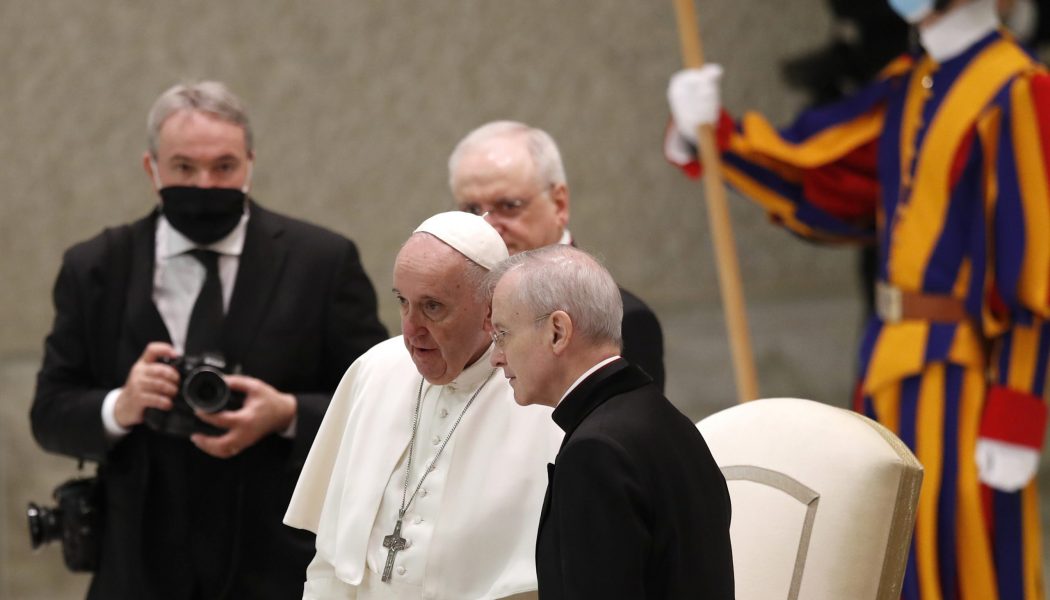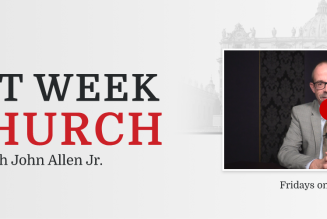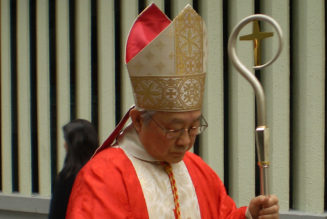
ROME – When he was the Archbishop of Buenos Aires, Cardinal Jorge Mario Bergoglio was infamous for rarely giving interviews. An Argentine reporter told me in 2013 that he once went out to a site where Bergoglio was saying Mass to cover the event, and then spotted him heading for the subway afterwards. From the window of his car, the reporter told Bergoglio he was heading back towards the center of town and asked if he wanted a ride, and Bergoglio reluctantly got in.
On the way, the reporter said, the future pope laughed and told him he was the lone journalist who’d ever succeeded in “trapping” him like that. He then proceeded to refuse to answer any questions on the record.
Those days, clearly, have been over for a while. Indeed, papal interviews are now so commonplace that his latest such exchange, with the Italian news agency Adnkronos on Friday, wasn’t front-page news even here in Italy.
Yet there’s much of real interest, beginning with the pope’s words on corruption in the Church. In a nutshell, Francis said the problem goes back centuries, that he’s doing his best to root it out, that more action is coming soon, but he’s “honestly not very optimistic” it will succeed and there’s a constant danger of backsliding because corruption is “cyclical.”
“It repeats itself, then someone comes along to clean and tidy up, but then it starts again waiting for someone else to come and put an end to this degeneration,” the pope said.
Though Francis didn’t mention the case of Italian Cardinal Angelo Becciu, dismissed by Francis last month and linked in media reports to a widening series of alleged financial and personal scandals (all of which he’s denied), most observers here situated the pope’s words in that context.
Francis is unquestionably right about the one-step-forward, two-steps-back dynamic of most recent Vatican reform efforts.
St. Paul VI created the Prefecture for Economic Affairs to rationalize Vatican finances, yet his papacy ended in debt and with the Vatican bank scandals about to explode. St. John Paul II attempted to clean things up by bringing in hard-nosed American Cardinal Edmund Szoka, yet we now know the way money was used during his papacy to bolster the ecclesiastical careers of figures now infamous for their roles in sexual abuse scandals. Benedict XVI launched a series of reforms, and yet he resigned amid a whole series of meltdowns.
(Indeed, Francis spoke in the new interview about a large dossier Benedict gave him back in 2013 with the results of his own investigations of those scandals, telling his successor it was now his turn.)
Though the jury is still out on the Francis reform, certainly the pontiff must have reflected on why those earlier efforts failed. One possibility worth considering is that the Vatican is a classic example of how culture beats policy every time.
A recent study by the intergovernmental Organization for Economic Cooperation and Development found that a large share of companies currently under investigation for various forms of fraud and abuse already have hugely expensive, state-of-the-art compliance programs with international anti-corruption standards. Likewise, a recent study in the International Journal of Economics and Business Research found little relationship between formal company policies and corruption, but a direct and enduring correlation between weak institutional culture and corruption.
In other words, it’s a consistent finding of organizational studies that changing laws and individual personnel may be necessary conditions to prevent corruption, but they’re hardly sufficient. The real trick is changing the organization’s culture.
What might it be about the culture of the Vatican that impedes reform efforts? A comprehensive would take way too long, but here are just three points worth considering.
First, Vatican personnel aren’t generally a terribly empowered lot. No one goes out of their way to demonstrate interest in their personal or professional development, and, for the most part, workers are treated as cogs in a machine, reflecting a 19th century assembly line concept of production.
(That’s one of the great ironies about the Vatican, actually – it’s obsessed with defending tradition, yet in many ways its current organizational model not only isn’t “traditional,” in the sense of reaching back into earlier layers of history, it’s not even really Catholic. It owes more to Henry Ford than to Gregory the Great.)
In such an environment, personnel often feel little investment in institutional wellbeing, and are less likely to consider it their business to report wrongdoing.
Second, the hyper-compartmentalization of the Vatican not only generates a spectacular duplication of resources and breakdowns in communication, but it also means that the pool of people with the knowledge to be able to spot possible problems is radically limited.
In an environment in which you can work 50 feet away from an official in a different department and go years without even speaking to him or her, how are you supposed to know what that person is really up to?
Third, Vatican personnel are conditioned to defer to authority, which means that even if a midlevel staffer were to suspect something may be amiss, they’re often not inclined to flag it because that’s seen as the role of the superiors. Very little in the system creates incentives for taking initiative or challenging the status quo.
None of those points have anything directly to do with corruption, but they may help explain why the culture of the Vatican seems so stubbornly resistant to reform efforts.
In other words, perhaps the trick to overcoming the pessimism Francis voiced in his new interview is taking a broader view of what an “anti-corruption” campaign really means. Finding ways to empower employees, giving them a greater investment not just in personal job security but the overall health of the organization, might be a place to start.
Follow John Allen on Twitter at @JohnLAllenJr.
Join Our Telegram Group : Salvation & Prosperity








